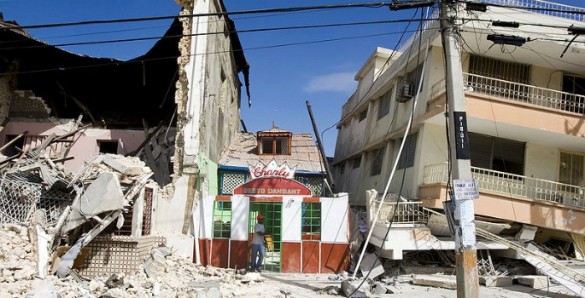
A new poll shows that Haitians have reacted to a devastating 2010 earthquake much as expected, with one notable exception.
The destruction and poverty caused by the earthquake have done remarkably little to erode confidence in democracy, with more than 64 percent of Haitians still supporting it. That’s according to survey from the AmericasBarometer poll conducted by the Latin American Public Opinion Project at Vanderbilt University.
The earthquake and its aftermath eroded confidence in the government that was in place until earlier this month, raised fears about crime and spurred many Haitians to become politically active, the poll shows. But support for democracy as the best form of government remains stout.
“[rquote]We find that the level of support for democracy after the earthquake has remained unchanged in municipalities that suffered great damage and municipalities that were less affected[/rquote],” said report authors Dominique Zephyr and Abby Cordova, both of Vanderbilt.
The magnitude 7.0 Jan. 12, 2010, earthquake was followed by more than 50 aftershocks, killed more than 300,000 people, injured at least another 300,000 and left about 1 million homeless, according to news reports. It caused severe damage in Port-au-Prince, Jacmel and elsewhere.
National survey
The survey is based on a representative national sample of 1,752 voting-age Haitians, including displaced citizens living in camps or tents. The margin of error is plus or minus 2.34 percent. The survey was conducted in Creole in July and August 2010, just months before the highly contested Nov. 28, 2010, presidential election, which was resolved in April 2011 when Michel Martelly was announced as the winner of a runoff. Martelly was inaugurated as president May 14, 2011, succeeding René Garcia Préval.
The survey findings are especially meaningful in the current period of transition, Zephyr and Cordova say. They note that while participation in community-based civic organizations has increased in the earthquake-stricken areas, the level of interpersonal trust is the lowest in the Americas. As possible causes, they point to the disintegration of social networks as people moved out of their home communities into tents and to the increase in crime. This low level of interpersonal trust, they say, suggests effective collaboration or teamwork may become more difficult.
The authors say they hope the survey will “serve to inform the policy decisions that will be taken by the Haitian people, their government and international donors” in addition to “more generally help and deepen scholarly understanding of the impacts of natural disasters.”
AmericasBarometer
The AmericasBarometer is conducted every two years by the Latin American Public Opinion Project at Vanderbilt University. Many of the questions included in the latest Haiti survey were also asked in the 2006 and 2008 AmericasBarometer survey, making it possible to gauge Haitians’ perceptions and experiences before and after the earthquake.
“While the disaster did not shake support for democracy, the survey found great discontent with the response of the national government to the emergency,” reads the report. The national government received the lowest job approval rating when respondents rated the effectiveness of organizations in dealing with the earthquake crisis. The national government was rated 40 on a 1-100 scale, well below institutions including churches, foreign governments and community organizations.
The entire study will be posted at the LAPOP website.
LAPOP was founded in the 1970s by Mitchell A. Seligson, Vanderbilt University Centennial Professor of Political Science and LAPOP director, to conduct scientific surveys of Latin American citizens about their opinions and behaviors related to building and strengthening democracies. It functions as a consortium of academic partners throughout the hemisphere. Major funding comes from the United State Agency for International Development, the Inter-American Development Bank and the United Nations Development Programme.